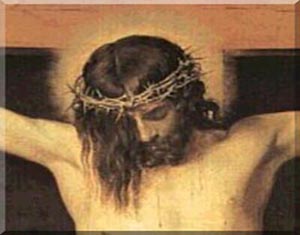The longer I live, the less urgent things become–even good and virtuous things. We are like ants, scurrying around under the sky of God, the only One who is truly special. Yesterday, I had great apostolic dreams and ideals. Today, my eyes are open more than ever to the truth that we can do nothing without God. For me, this means that without him, I can’t relish anything or come up with any ideas that are meaningful for myself or others. The only solution to this predicament is to make friends with my “nothingness” and graft it onto Christ without any “ifs,” “ands” or “buts.” Fr. Alberione said that if this grafting does not take place, then “the human being is ridiculous, incapable of doing anything.” Saints are people who take small, basic truths and push them to their limit, that is, to the extreme of love. But who is the One and what is the “nothingness” we are speaking about?
Let’s start with the second part of the question. In opening our eyes to the splendor of our nothingness, we must make an important qualification, namely: we are not “nothing” in a substantial sense. Far from it. We are similar to God, who rests tranquilly in the depths of our soul, like Jesus rested on a cushion in the boat during a storm. But we are nothing due to our weak will and lackluster thoughts, which reduce everything to the mediocrity with which we are so often content. The fact that we are nothing is not a problem for God; the problem is that we often pretend it is not true. Let us accept our nothingness with full awareness and clean up our souls so that they will be bright and shining places from which Grace can radiate.
But Grace in what form? That of the Crucified Christ. Let us stop a moment to reflect on the fact that Christ could have died in whatever way he chose in order to save us. St. Alphonsus Liguori said that if the only aim of Jesus was to redeem us, he could have died during the slaughter of the Holy Innocents in Bethlehem. But that would have been a different act of love: beautiful and pleasing to the Father but unable to satisfy our questions. Instead, Jesus wanted to die as a result of “the terrible tortures invented specifically for him” (Alberione) so that we would understand not so much love per se as the superabundance of his love for us. The divine exaggeration that makes the love of Jesus both limitless and luminous bursts into the depths of our soul, riveting there the truth of the classic saying: “Those who can meditate on the Passion of Christ without being moved don’t know anything about love.”
But the best is yet to be said, namely: that without this Man, powerless and lifeless, nailed to the wood of the cross, our nothingness would remain precisely and immutably that. We need this supremely powerless One: without him, we cannot relish, love or pass a verdict on anything. The spiritual paradox is that we need this Powerless One! As human beings, we nailed the Son of God to the cross. To become powerful with him, we must reduce ourselves to powerlessness, nailing ourselves to his cross. It doesn’t take much to do this–all we have to do is be honest with ourselves. To “nail ourselves” is to “know ourselves.” As Christ said to St. Catherine of Siena: “I am; you are not.”
Lent: the contemplation of our nothingness, which reconciles us with life and death, with our past errors and the errors of others. Lent: a time in which to cheat the “despot of this world,” who imprisons our hearts by prompting us to replace the truth with a lie (cf. F. Battiato). Easter: the radiance of the immaculate splendor of love shining upon us.
Giuseppe Forlai, igs

